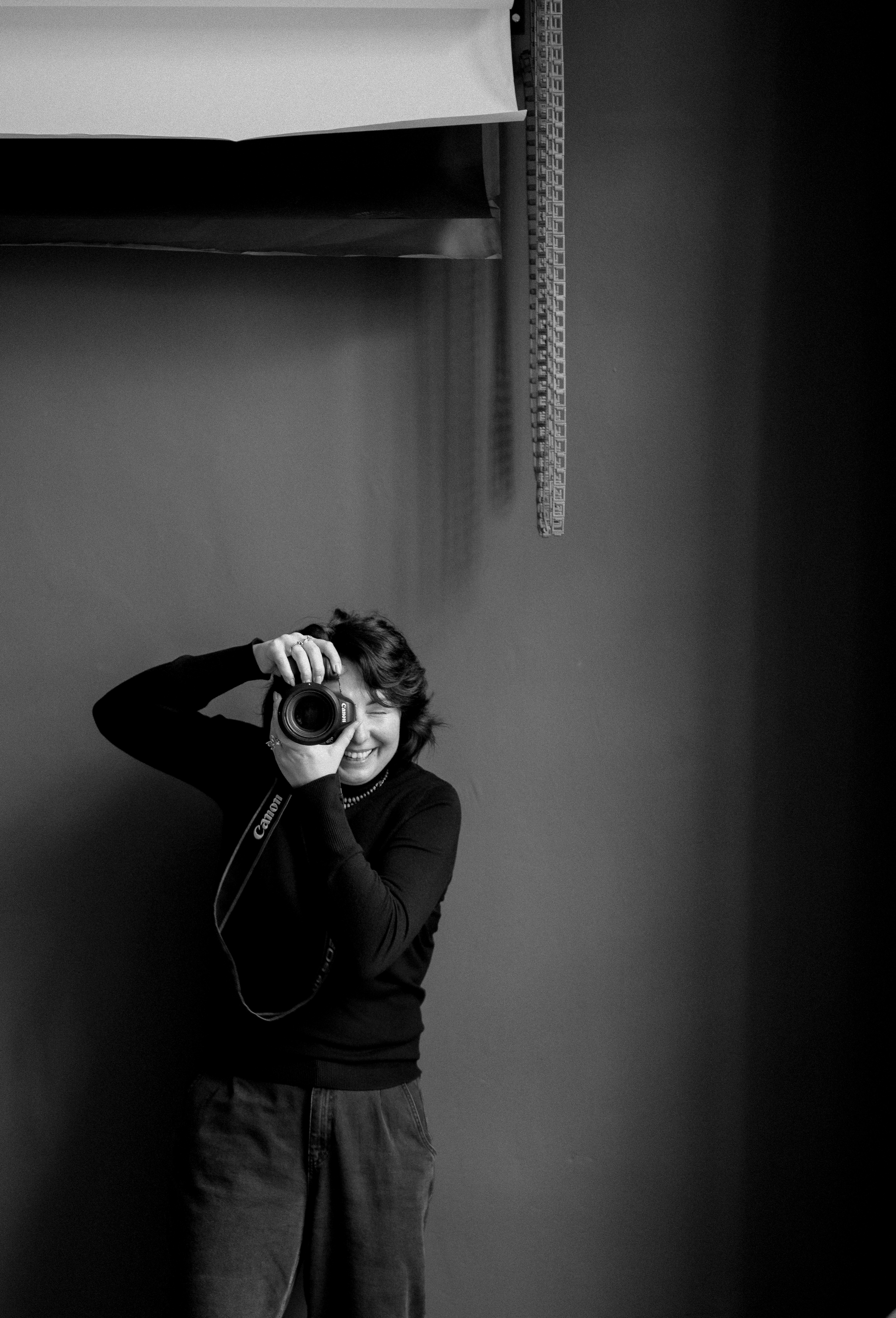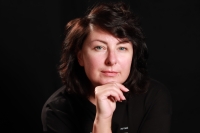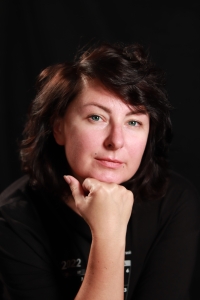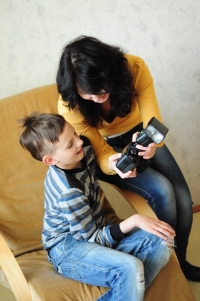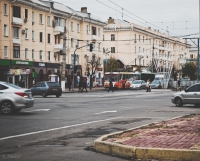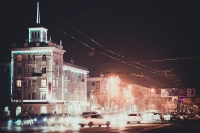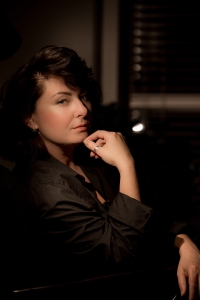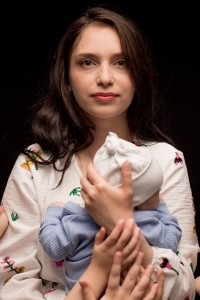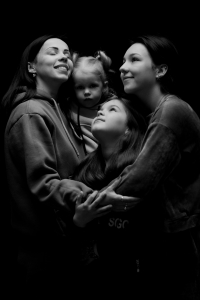We came to the train station with Vladik. There was a queue on the street. We have a very beautiful train station, indeed, the Luhansk train station is marvellous, it is huge. And the queue started from the street, we had been standing there with Vladik for the whole day, it was a torture for me, because Vladik... it is hard for him to stand still where there are a lot of people. I later was angry at myself I had taken him there at all. But, thank God, we managed and it was my turn to come to the ticket window. I asked, ‘I need two tickets to Lviv.’ And she looked at me and said, ‘Tssss.’ Because I said it loudly, and she said, ‘Tsss... what date?’ Then it came to me that <...> again, God was protecting me, as I got to know later, even then there were a lot of those... patrols, as they called themselves, who were checking destinations, and they were taking those going to Western Ukraine, they were taking them to cellars. And I was like... Looking at her, and she showed me, ‘Talk quieter.’ I finally understood, and asked, ‘I need two tickets to Lviv.’ She told me, ‘There are tickets on the first. Two. Two tickets.’ I took those two tickets, rushed out, gathered <...> not a lot... of bags <...>. I took my photo camera with me, the most valuable thing for me. Vladik's car collection. Because since the very beginning, when we had been told about his autism, we decided to create a hobby for Vladik, to collect iron cars. I knew I couldn't leave them behind, as it was an expensive hobby, and, secondly, it was his world. And we took all of that. It was the day of our leaving, we came to the train station. I was brought by my mom and my brother. My mom refused [to leave]. I offered her, told her, ‘Let's go together,’ and she said, ‘No, it will be over soon, stop that’ <...> We came to the train station and I was standing there shocked, seeing these were not people but suitcases going, so many of them were there. Our train was waiting already, and my coach number was 22, the last one, can you imagine? Coach 22. When the train arrived and the door opened, people... well, it was like an avalanche. I was shocked, thinking: ‘God, where, how can I get there with a child…’ It was thanks to my brother, as he took my camera and the car collection straight on his shoulders and came in like a tank. He said, ‘Follow me.’ I followed him with Vladik, as it was impossible to come in, people were not letting anybody inside. We were sitting on one another. We sat at the window, my mom was standing outside. You know, during all this time, when all of this was happening, I never noticed how grey and old she had turned. And when we got on the train, it struck me I was leaving my city, I looked at my mom, and she... she was standing there crying. But she is so strong, she was crying and smiling. I looked at her and thought, ‘God, she has turned so grey over this time.’ She was just all grey. And then the lady conductor appeared. She said we would be trying to leave the station, but there was a heavy shelling. In fact, she told us, ‘People, we need to pray. We need to pray to leave the station, because ahead there will be... we need to leave now,’ she told us... Where did she tell us? I think she said, ‘We'd better make it to Debaltsevo.’ This is what I remember. There were heavy shellings between Luhansk and Debaltsevo and I was really scared then, thinking: ‘What if I don't make it? What if I don't get to leave? What if we will be shot now, and that's all?’ The train started. There were so many people in our coach – standing, lying, sitting, we were sitting on one another. And silence. It was hot, everyone was soaking wet, and silence. Indeed, it was such a moment. It stays with you forever. We started moving, having already left Luhansk behind, and I saw... well, through the window, it was not too close, but it could be clearly seen, all those explosions, shells falling down, exploding. Up till now... I recollect it... and think: ‘God, God, I need to get myself together,’ but it was panic. There are people who get ready in panic, but I am different, I can't control myself, <...> I understand, I can't cry as there is my child next to me, and I somehow got myself together and started: ‘Our Father, Who art in heaven, hallowed be Thy name…’. And I was praying, and praying, and, thank God, we made it. We made it, and our train was going through Kyiv. Our coaches... three or four coaches that were going to Western Ukraine, were attached to another train later, so it turned out we did not have a direct train. We arrived in Kyiv and stayed there through the day, and closer to the evening <...> we were attached to another train and went on. Went on to Lviv. When already in Lviv, I called my mom and told her, ‘Mom, I am in Lviv.’ She said, ‘Remember that day, as it was the last train. You left in the last coach of the last train Luhansk-Lviv.’
